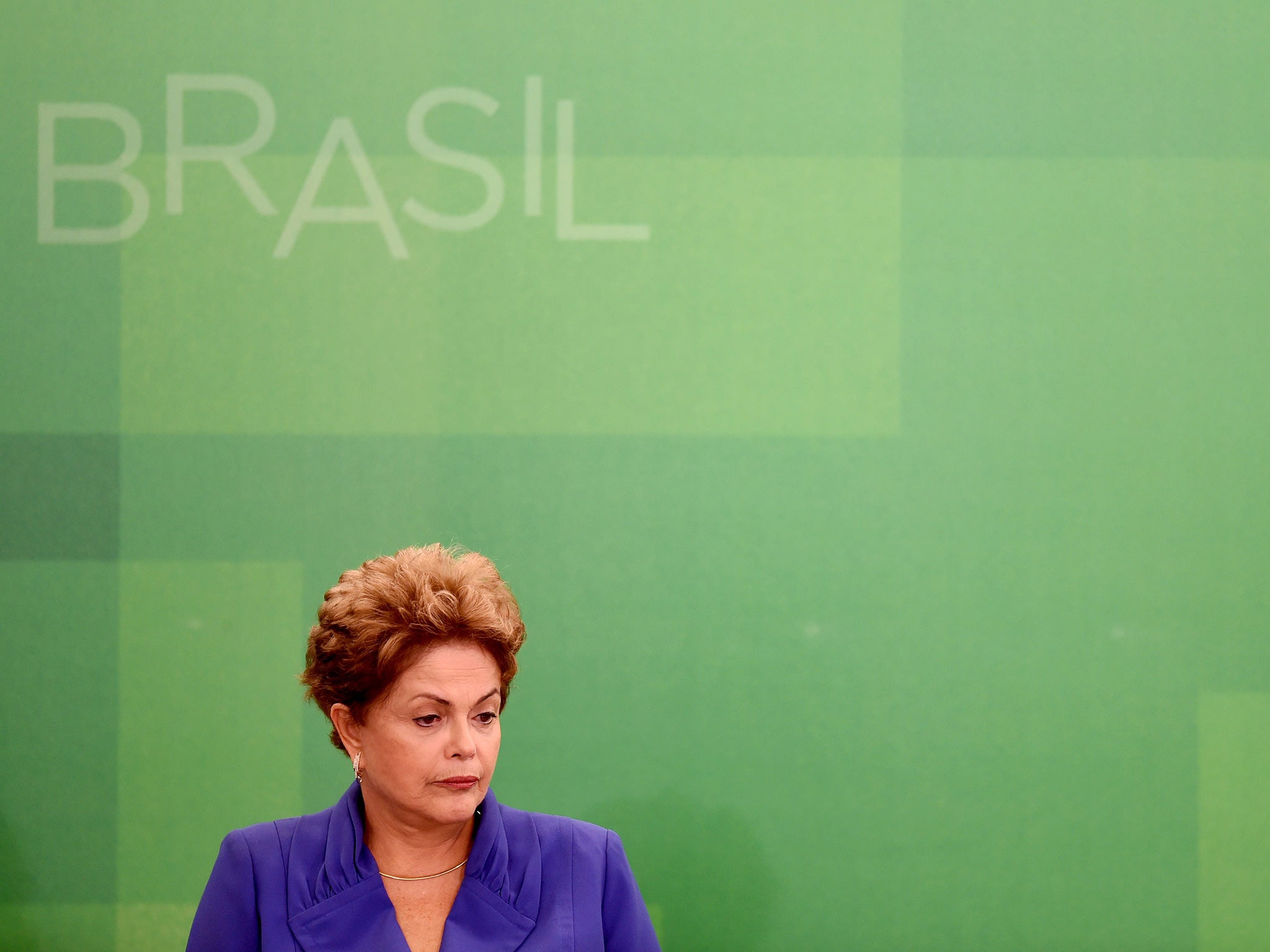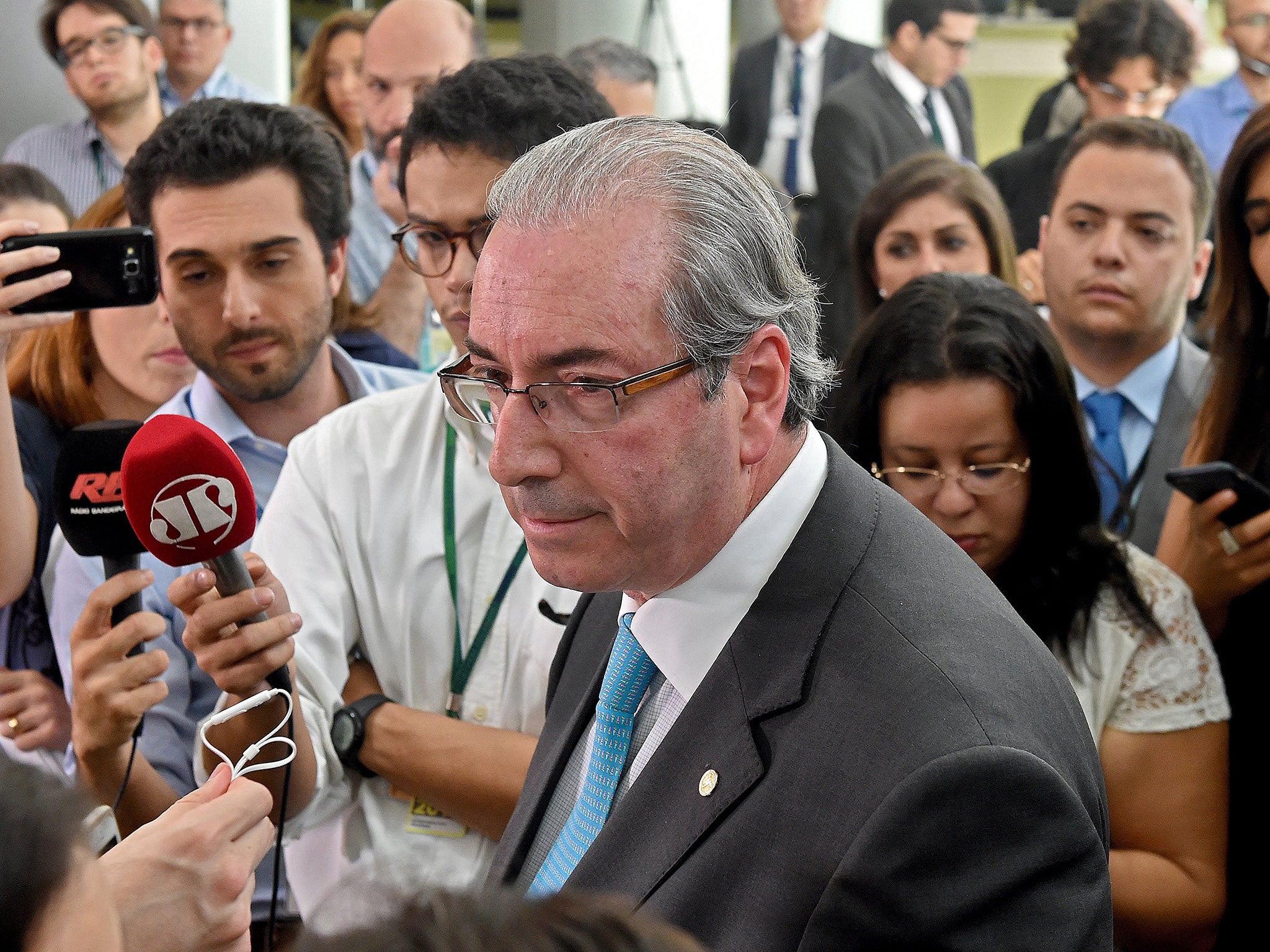Dilma Roussef: Impeachment proceeding opened against Brazilian President
The President spoke reject any accusations, and most analysts predicts that she will survive

Your support helps us to tell the story
From reproductive rights to climate change to Big Tech, The Independent is on the ground when the story is developing. Whether it's investigating the financials of Elon Musk's pro-Trump PAC or producing our latest documentary, 'The A Word', which shines a light on the American women fighting for reproductive rights, we know how important it is to parse out the facts from the messaging.
At such a critical moment in US history, we need reporters on the ground. Your donation allows us to keep sending journalists to speak to both sides of the story.
The Independent is trusted by Americans across the entire political spectrum. And unlike many other quality news outlets, we choose not to lock Americans out of our reporting and analysis with paywalls. We believe quality journalism should be available to everyone, paid for by those who can afford it.
Your support makes all the difference.Already struggling with weak popularity over Brazil's economic ills and a political corruption scandal, President Dilma Rousseff now must fight an impeachment effort launched by a political foe who heads Congress' lower house.
Speaker Eduardo Cunha opened impeachment proceedings against Rousseff on Wednesday, citing a court's finding that her administration violated fiscal responsibility laws by using money from state-run banks to fill budget gaps and pay for social programs.
Rousseff went on television to sharply reject Cunha's accusations, and most analysts predicted she would survive.
"The chances of President Rousseff being impeached aren't as big as politicians say now, despite this bold move by Cunha," said Luciano Dias, a political consultant at the Brasilia-based Analise Politica firm. "They are not insignificant, but they are not huge."
Members of Rousseff's Workers' Party charged that Cunha was retaliating against the president over his own legal troubles, in which he is accused of taking bribes and could be kicked out of congress.
"I've committed no illicit act, there is no suspicion hanging over me of any misuse of public money," the president said in her national broadcast. "I don't have any offshore bank accounts, I have no hidden assets."
Her comment was a direct jab at Cunha, who has been charged with taking millions in bribes in connection to a big kickback scheme that has embroiled state-run oil company Petrobras. Prosecutors allege Cunha has at least $5 million hidden in Swiss bank accounts and it is widely thought he could be arrested.

An ethics committee in the House of Deputies is considering whether the full body should vote on the question of Cunha losing his seat.
He launched the impeachment proceedings just hours after three Workers' Party deputies on the 21-member ethics committee indicated they would recommend he be removed from Congress, which was seen as a key decision since the committee is narrowly split.
"Cunha has created the lowest-level of blackmail a nation can see," Sen. Humberto Costa, the Workers' Party leader in the Senate, said of the impeachment move.
The impeachment measure will now be considered by a special House commission in which all political parties will be represented.
While that panel is expected to advance the matter to the full House, analysts said it was unlikely impeachment would get the two-thirds vote needed to remove Rousseff from office temporarily. If impeachment did pass the House, the case would go to the Senate to decide whether she should be removed permanently.
Rousseff began her second term in office this January and has been hobbled by the political corruption scandal at Petrobras although she herself faces no accusations of wrongdoing.
Then in October, Brazil's federal audit court ruled that Rousseff broke the nation's fiscal responsibility law in 2014, opening the door for impeachment proceedings.
The impeachment effort comes as Brazil's economy is expected to contract more than 3.5 percent this year and again be in recession next year. That could be a wild card for her as she fights for her political life.
"It is going to get worse for Rousseff because the economic crisis will get worse in the first quarter of 2016," said David Fleischer, professor emeritus of political science at the University of Brasilia. "The pressure against her will be huge."
"This decision could also stimulate Dilma's party to tell her to resign, since the Worker's Party might suffer a heavy defeat in next year's mayoral elections because of her unpopularity," he added.
AP
Join our commenting forum
Join thought-provoking conversations, follow other Independent readers and see their replies
Comments